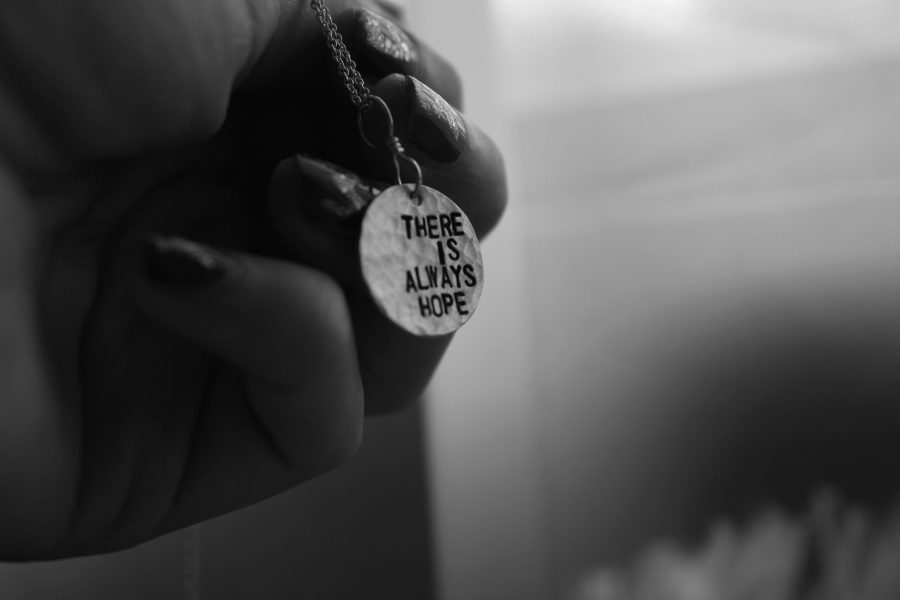I wanted my freedom and I wanted it desperately.
I thought, because of the nature of the OCD that I was dealing with, that if I told someone about the thoughts that I was having on suicide, the fixation of it, that they wouldn’t believe me to be a danger to myself. I thought they might just think I was talking about the OCD again and that they’d respond with “thoughts are just thoughts.”
I thought that I had to prove I was a danger to myself. And the only way I could prove that, my brain said, was to act on my suicidal thoughts. The only way I would prove I was serious about dying from suicide was if I died by suicide.
I remember the discussion between my brain and myself. I remember it taunting me, telling me if I didn’t ingest the pills, what I was dealing with was “just” OCD. But if I ingested the pills, then it was something else. So, was it “just” OCD or was it something else?
I remember my own self-awareness that I knew my true self would recognize that ten pills, twenty pills would be a genuine threat to me, and therefore I would step in to prevent myself from acting on my suicidal thoughts. So I had to trick myself. I had to get myself to ingest some smaller amount.
Suicide had to be better than the nightmare that I was struggling to breathe in. Breathing was exhausting, moving was exhausting, everything had just become exhausting.
I couldn’t move, I couldn’t talk, and I couldn’t open my own mouth to let somebody know—anybody! The secondary depression stole my voice, the OCD my will to live. There had to be a way out of that life and the only alternative that was always on my mind, playing like a charred weapon throwing out bullets, was suicide.
However, first I had to convince myself to let go of life. Before I could act on my suicidal thoughts, I had to ask myself permission to kill myself.
I knew the first hour of the OCD telling me to kill myself would be met with a firm no. But after the three hundredth time, then, then I would waver. And then a little more time after that and I’d be considering and I’d finally, finally give myself that sweet, glistening allowance: Okay, I’ll do what you say.
All in the disillusionment that the OCD would give me reprieve if I just did what it said.
This led up to the first time I tried to kill myself on Tuesday, January 6 2015, when I ingested five pills of that same painkiller from earlier. I walked into 2015 with the promise to myself that I wouldn’t see the end of the year, because I’d be dead.
But I lacked conviction.
In sharing my story for this piece, someone told me that I couldn’t prove death. That I couldn’t possibly prove I was serious about suicide if I died by suicide and stayed dead. If I stayed dead by suicide I wouldn’t be able to live my life another day, and some part of me wanted to live life another day. Death doesn’t work that way, though.
And, I think that’s the worst part.
The worst part is not in all the action that I did manage—sticking a pen in an electrical outlet, how I tried slitting my wrist on the toilet paper dispenser after I placed a bag over my head for ten seconds, how I skipped class because I was trying to hang myself in the bathroom about ten feet away from the classroom.
The worst part is certainly not lying within the three hospitalizations I had from the end of January 2015 to June 2015.
The worst part is that no matter what I act on it is still not considered “serious,” not really.
I’m still seen as someone who didn’t really want to die—and you know, yeah, that’s true. Wanting freedom and wanting death are two different things, but when they seemingly align to mean the same thing, you’ve got some serious problems going down.
Sometimes I wish I didn’t lack such conviction. Some days I wake up and think to myself, “You should have killed yourself when you had the chance.”
These are no easy things to admit. But I’m being honest about my experiences, because there are not enough voices out there who are sharing these words, words others can relate to and feel less alone in reading. Because talking about suicide is important, especially when it comes to preventing another suicide from happening.
Voice From the Darkness Part II
October 14, 2016





















































